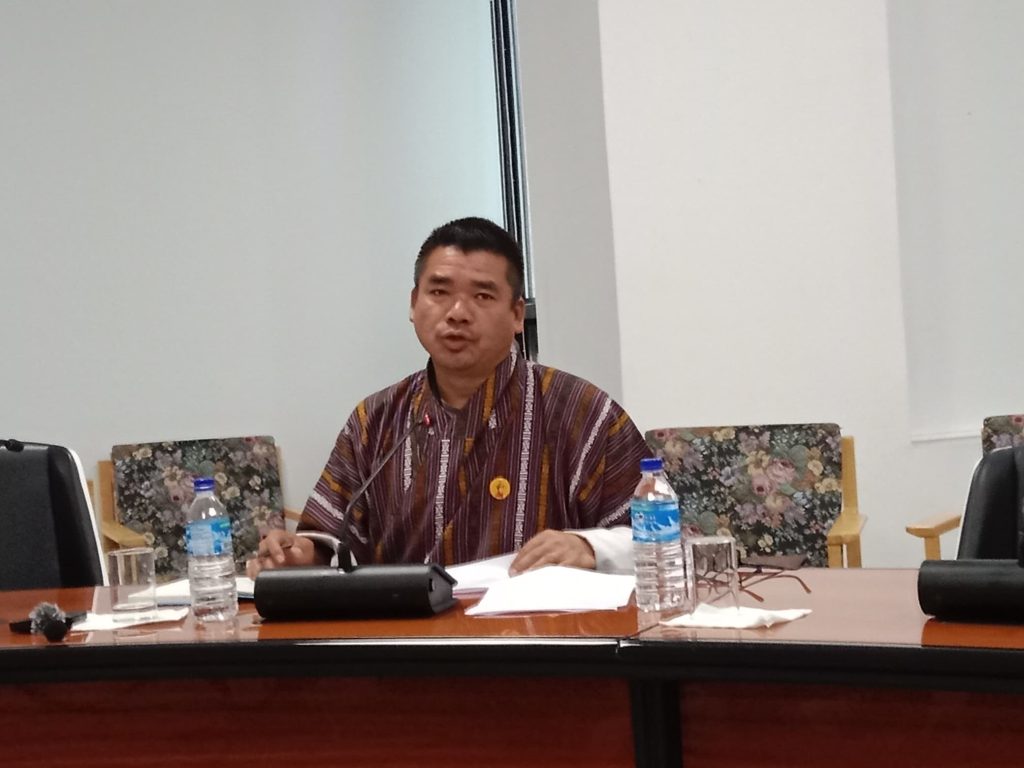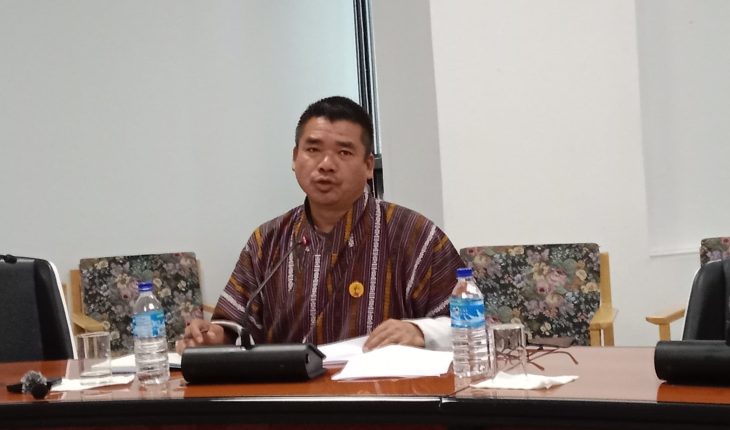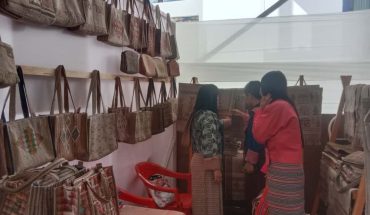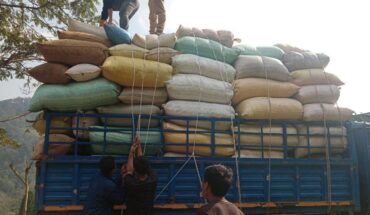
DAWA ZANGMO | Thimphu
The chronic shortage of affordable housing in one of Bhutan’s busiest urban centers, the National Housing Development Corporation Limited (NHDCL) is constructing new housing units under the Green and Resilient Affordable Housing Sector Project (GRAHSP). Supported by the Asian Development Bank (ADB), the project is designed to provide safe, decent, and affordable housing options for low- and middle-income households across the country, with Phuentsholing as one of the priority sites.
With a total budget of USD 37 million, the project comprises USD 24 million in loans, USD 6 million in grants, and USD 7 million as counterpart financing from the National Pension and Provident Fund (NPPF). The initiative, launched on February 23, 2022, is scheduled to run until June 30, 2028.
While Phuentsholing remains a critical focus due to acute housing pressure, the project extends nationwide, covering multiple sites. Housing units are being developed in Trashiyangtse, Samdrup Jongkhar (two sites), Nganglam, Phuentsholing (three sites), Thimphu (north and south), Tshimasham in Chukha, Samtse, and Pemagatshel.
According to project documents, the original target was to construct over 1,000 units. However, due to inflationary pressures, the budget will currently cover 801 units.
Despite these constraints, the project is progressing steadily. Thirty-two units in Trashiyangtse were completed and allotted in August 2025, while another 32 units in Dradulthang, Samdrup Jongkhar, are expected to be completed by October and allotted in November 2025. Construction in Toed, Samdrup Jongkhar, Nganglam, and two sites in Phuentsholing is ongoing. Other sub-projects in Thimphu, Tshimsham, Samtse, and Pemagatshel are currently in different stages of design.
The housing units built under the ADB-funded project will specifically target low-income Bhutanese citizens. Eligibility criteria set for allotment include a maximum gross household income of Nu. 40,000 per month.
Priority will be given to vulnerable groups, such as single female headed households, municipal workers, and persons with disabilities. The scheme is expected to directly benefit families struggling with high rent and limited access to safe and affordable housing in Phuentsholing and other growing urban centers.
Infrastructure and Transport Minister Chandra Bdr Gurung during the meet the press session held on 1 October explained, “The housing units constructed under this project will be allocated to low-income Bhutanese citizens with a gross household income not exceeding Nu. 40,000. Priority will be given to those facing socio-economic challenges, ensuring that the most vulnerable groups receive support.”
Phuentsholing, being Bhutan’s commercial hub and border town, has long faced pressure on its housing market, with demand outstripping supply. Rent in the town has risen sharply over the years, creating challenges for low- and middle-income families, particularly municipal workers and small-scale entrepreneurs.
The construction of three housing projects in Phuentsholing under GRAHSP is expected to significantly ease the burden, offering affordable alternatives and reducing dependency on private rental housing.
Sonam Dorji, a shopkeeper who has been living in Phuentsholing for over a decade, shared his experience: “Rents in Phuentsholing have become very high, and for people like us running small businesses, it is difficult to afford decent housing. This new project gives us hope that we can finally live in proper, affordable homes.”
Similarly, Tshering Lhamo, a municipal worker, said the project would make a real difference to families like hers. “For years, many of us working in Phuentsholing town have struggled with small, overcrowded rental houses. Having access to affordable housing means we can live with dignity and stability.”
Another resident, Kinley Wangmo, a single mother, said the prioritization of vulnerable groups was especially important. “As a single parent, it is not easy to compete in the private rental market. With this project giving preference to female-headed households, I feel there is finally some recognition of our struggles.”
Alongside the physical construction of housing units, the Department of Human Settlement (DHS) under the Ministry is working on a broader policy framework to address the long-term challenges of housing in Bhutan. As part of the Technical Assistance (TA) component of the same ADB-funded project, DHS has engaged international consultants to develop a National Housing Strategy.
The strategy will cover key aspects of the housing sector, including homeownership policies, condominium regulations, housing finance mechanisms, database creation, and needs assessments. Officials say these measures are intended to provide a comprehensive policy direction for addressing Bhutan’s housing needs in the future.
According to DHS, several aspects of the TA work are now in the final draft stage. These documents, prepared by international experts, will undergo further deliberation with both national and local stakeholders before being finalized.
Lyonpo Chandra Bdr Gurung said, “The housing sector in Bhutan will be highly benefited as the strategy will provide strategic directions for policymakers. It will address multiple areas of concern, from ownership models to financing options, ensuring that future housing development is inclusive and sustainable.”
With the NHDCL’s housing projects underway and the National Housing Strategy nearing completion, officials remain optimistic about tackling Bhutan’s urban housing challenges in the coming years. While the initial goal of 1,000 units has been adjusted to 801 due to inflation, the emphasis remains on ensuring that the most vulnerable groups in society are prioritized in housing allocations.
The project is expected to not only provide immediate relief in towns like Phuentsholing but also establish a foundation for long-term housing security across the country.
As Bhutan urbanizes rapidly, affordable housing remains one of the central socio-economic challenges. The ongoing construction, supported by the Asian Development Bank and coordinated by NHDCL and DHS, marks a critical milestone in providing secure, affordable, and resilient homes for Bhutanese families in need.





